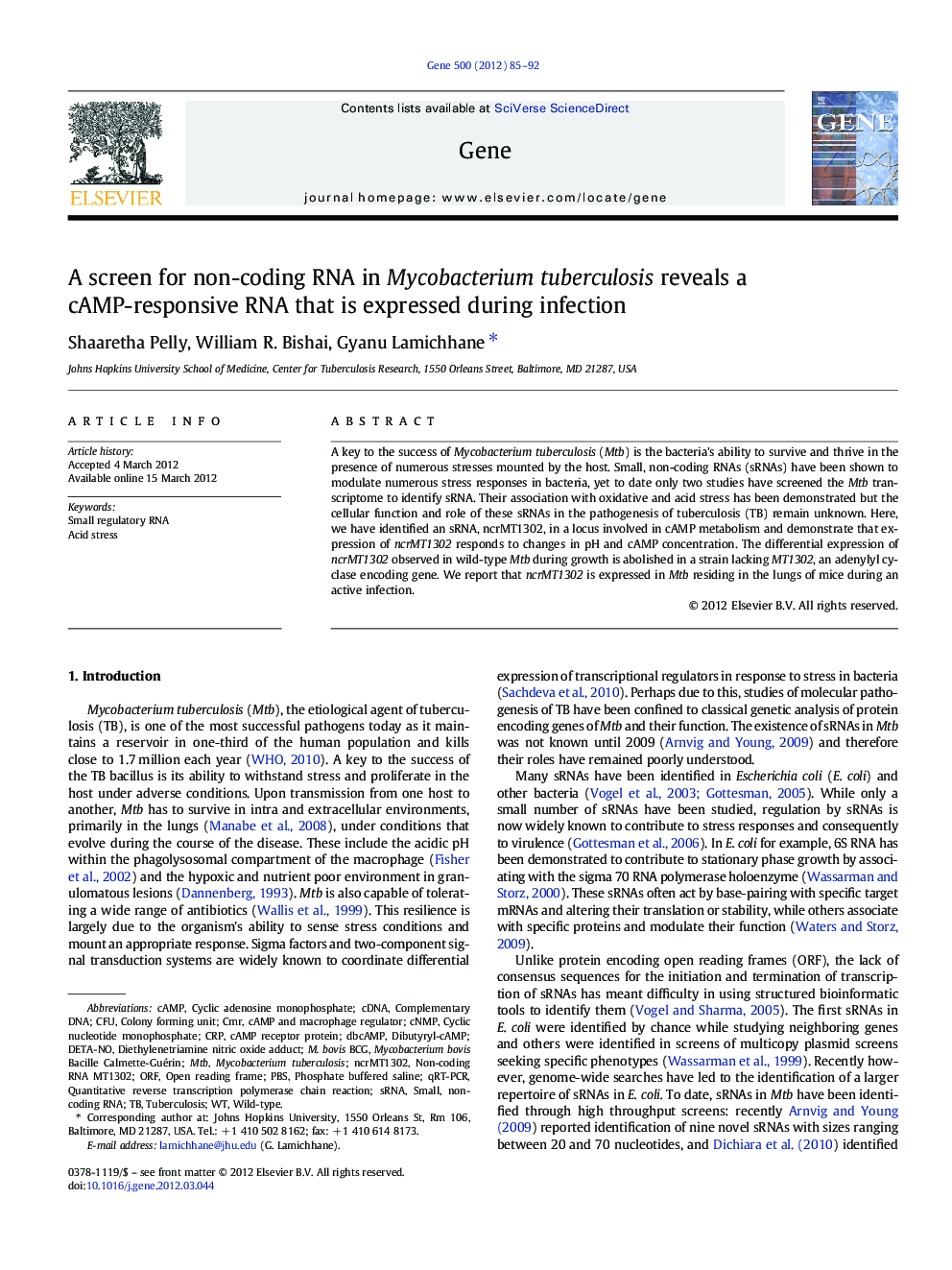| Article ID | Journal | Published Year | Pages | File Type |
|---|---|---|---|---|
| 2817929 | Gene | 2012 | 8 Pages |
A key to the success of Mycobacterium tuberculosis (Mtb) is the bacteria's ability to survive and thrive in the presence of numerous stresses mounted by the host. Small, non-coding RNAs (sRNAs) have been shown to modulate numerous stress responses in bacteria, yet to date only two studies have screened the Mtb transcriptome to identify sRNA. Their association with oxidative and acid stress has been demonstrated but the cellular function and role of these sRNAs in the pathogenesis of tuberculosis (TB) remain unknown. Here, we have identified an sRNA, ncrMT1302, in a locus involved in cAMP metabolism and demonstrate that expression of ncrMT1302 responds to changes in pH and cAMP concentration. The differential expression of ncrMT1302 observed in wild-type Mtb during growth is abolished in a strain lacking MT1302, an adenylyl cyclase encoding gene. We report that ncrMT1302 is expressed in Mtb residing in the lungs of mice during an active infection.
► We identified small non-coding RNAs in M. tuberculosis, the pathogen that causes TB. ► We characterized the role of one of these RNAs in the physiology of the pathogen. ► This RNA, ncrMT1302, responds to changes in pH and cAMP. ► This RNA is expressed by M. tuberculosis in the lungs of infected mice.
